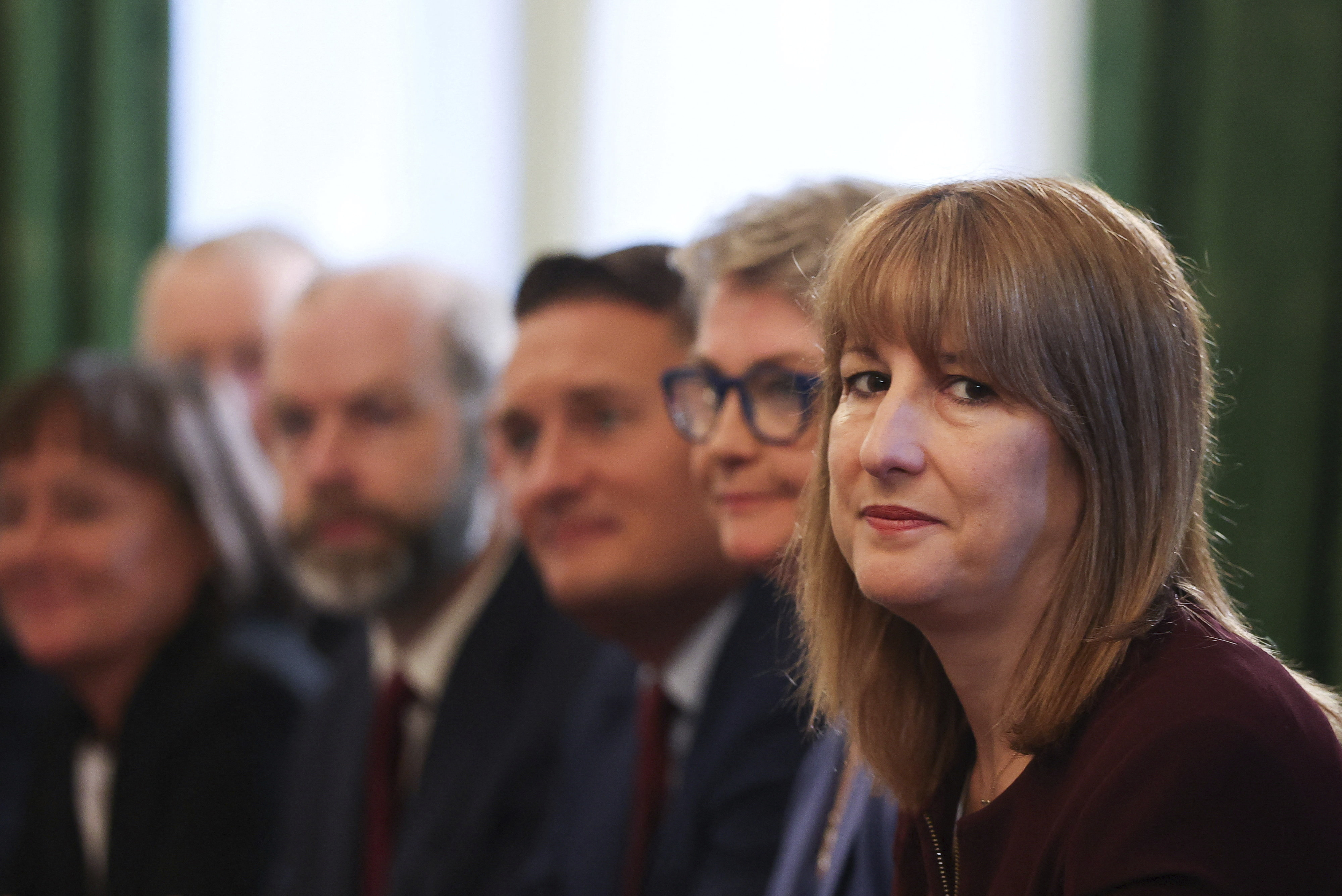
Stubborn inflation has emerged as one of the biggest drawbacks from Chancellor of the Exchequer Rachel Reeves’ first budget. She risks repeating the result with her second.
Business groups have warned in recent days that the Labour government’s policies on taxes, employment rights and the minimum wage threaten to pile billions of pounds of operating costs onto companies and stoke price increases for another year. This time, they say, the impact could be sharper since firms have smaller margins and thus less capacity to shoulder the burden without passing on costs.
“Our No 1 ask this budget is for no more tax increases on business,” British Chambers of Commerce spokesman Steve Partridge said. “The only place you could absorb that now is in price rises.”
Bound by Prime Minister Keir Starmer’s campaign pledge not to hurt “working people” — defined as raising income taxes or hiking VAT — Reeves opted to balance her budget in October by increasing employers’ share of payroll contributions by £26 billion ($35 billion). She also imposed a sharp increase in the minimum wage, a centerpiece of the Labour Party’s first spending plan in 14 years.
Almost a year later, the consensus that such policies have contributed to an increase in the rate of inflation has solidified, with the Bank of England recently joining the Office for Budget Responsibility in expressing concerns. The consumer price index was hovering around the government’s 2 percent target when Reeves announced her spending plan. The gauge hit 3.8 percent in July and some BOE rate-setters are now advocating a slower pace of easing to keep prices in check.
ALSO READ: Reeves has a £51 billion fiscal hole to fill, UK think tank says
Businesses fear a fresh round of regulatory burdens and tax hikes after Reeves announces her second budget on Nov 26. She’s facing a projected £35 billion gap, according to Bloomberg Economics calculations that include rising borrowing costs, Starmer’s U-turn on proposed welfare cuts in July and a looming growth downgrade by the OBR.
Although Reeves hasn’t publicly acknowledged that her policies have stoked inflation, she and her aides have privately begun to sound the alarm about how higher prices could slow the pace of interest rate cuts, lower living standards and stir industrial unrest. London Underground train drivers are conducting a weeklong strike, arguing that the 3.4 percent wage hike they’ve been offered is below the current rate of inflation. The BOE expects price increases to peak at 4 percent in September before subsiding.
Reeves told ministers at a cabinet meeting on Tuesday that they must work together to prevent a further inflationary build-up ahead of the November budget. “The government must focus on going further to support the Bank of England in reducing inflation, controlling public spending and driving growth,” she said.
Starmer has at the same time sought to strengthen his oversight of economic policy and maintain ties with business by ahead of the budget forming a new “budget board” made up of key figures from 10 Downing St. and the Treasury. The group will be co-chaired by economic adviser Minouche Shafik and Treasury minister Torsten Bell and includes top Downing Street aides, according to a person familiar with the matter.
However, retail and business groups said government policies threaten to make the problem worse, risking a repeat of last year’s increase to the employers’ share of National Insurance Contributions — much of which businesses pushed through to consumers. The OBR last year estimated the NICs hike would lift inflation by 0.4 percentage points.
Small companies also face an end to business rates relief in April that will land them with a £1.7 billion tax rise. Meanwhile, incoming regulations on workers’ rights, minimum pay and new packaging rules pose new costs for companies.
A survey in April by the British Retail Consortium found that 52 percent of members expect the employment rights bill to increase costs. The government’s own analysis estimated it would cost as much as £5 billion. The burden would be “concentrated on employers in lower-paying sectors” like retail, hospitality and leisure with thin margins and little capacity to absorb the hit, the BRC said.
If all £5 billion were to fall on those low-paying sectors, the government study showed, it would increase wage bills by 1.5 percent on top of a planned 4.1 percent increase in the national living wage from April. The same study revealed that firms’ main response would be to raise prices.
While the Monetary Policy Committee has cut rates every three months since August 2024, investors now don’t expect rate-setters to lower them again until February due to sticky inflation. High inflation is not just eroding living standards, but pushing up government borrowing costs, making it harder for Reeves to balance the books.
Simon French, chief economist for Panmure Liberum, wrote in a note last week that elevated borrowing costs for long-dated UK government debt were partly due to market fears of persistent inflation. “We are modestly encouraged by Treasury language subtly shifting to the task of controlling inflation,” French said.


